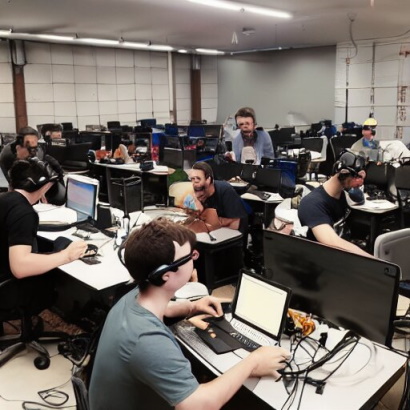Decentralized Search Engine Idea
12/03/2022 10:11 AM MST
technology

In an era increasingly shaped by online information, concerns about misinformation and algorithmic bias are more relevant than ever. The dominance of a few major search engines leaves many feeling that the free exchange of ideas is curtailed. Addressing these issues requires a different approach to search – one built on decentralization, transparency, and community trust.
This proposal outlines a concept for a decentralized search engine designed to empower users with greater control over their information landscape. The core philosophy acknowledges the importance of individual perspective in forming worldviews, which are crucial for life decisions. Therefore, this technology should prioritize user autonomy and the integrity of individual perceptions within a distributed network.
Core Principles & Goals
Decentralization: Content should be indexed across a distributed network, not reliant on a central database controlled by corporations or governments. This enhances resilience against censorship and manipulation. Transparency: The mechanisms for indexing, ranking, and content verification should be as open and understandable as possible to foster trust. Community Trust: Utilize decentralized reputation systems to help users identify valuable or reliable sources within the network, rather than relying solely on opaque algorithms. Privacy & Anonymity (Carefully Balanced): Offer options for user accounts, recognizing that some users may wish to share information without personal identification, while others contribute more publicly. Addressing Misinformation and Bias
Decentralization offers a potential pathway away from the biases inherent in centralized algorithms trained on limited data sets. By allowing content to be indexed across many nodes, results can reflect a broader range of perspectives. However, this decentralization must be managed carefully: anonymous contributions should be clearly marked, potentially with lower initial trust scores and visible indicators (e.g., low reputation score, new account), encouraging users to view such content critically while still preserving the right to speak freely without immediate identification.
Technical Considerations & Potential Features
The technical implementation would require significant innovation. Ideas include distributed hash tables for indexing, consensus mechanisms like Proof-of-Stake or similar models for verifying content contributions (perhaps through community voting or reputation), and decentralized ranking algorithms that leverage user interaction data (e.g., clicks, time spent) weighted by account reputation.
Some potential features could enhance user experience and trust:
Reputation Systems: Users can earn positive reputation based on community feedback or verified contributions. Older votes/reputations could gradually lose weight to prevent echo chambers. Commenting & Discussion: Allow users to comment on indexed pages or specific pieces of content, fostering discussion directly within the search results context. Network Visualization (Optional): Users might be able to see connections between sites they frequent within their own network, potentially revealing related information sources. This would be purely user-facing and anonymized. The Path Forward
Challenges remain: users need to become aware of such alternatives, and crucially, they need a way to initially discover news about these decentralized platforms themselves without falling victim to bias in existing search results. Potential solutions could involve integrating decentralized discovery mechanisms within the proposed network or leveraging alternative, smaller-scale information hubs.
This vision is not merely technological; it reflects a desire for a more just and equitable information ecosystem. As reliance on digital technology grows, the tech community has an opportunity to contribute positively by building tools that prioritize user autonomy and truth over unchecked commercial interests.
Let's work towards creating a decentralized search future where individuals have greater freedom and control over the information shaping their worldviews.